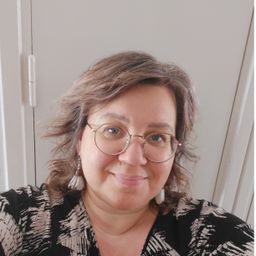Intangible industrial heritage – is that a thing ? Defining and recognizing intangible industrial heritage in Finland
Mon statut pour la session
Quoi:
Paper
Partie de:
Quand:
13:30, Lundi 29 Août 2022
(20 minutes)
Où:
UQAM, pavillon J.-A. De Sève (DS)
- DS-R515
This presentation focuses on the concept of intangible industrial heritage and how its features can be recognized locally and nationally through co-operation.
Industrial heritage is most defined as the physical remains of the history of industry and technology. However, industrial phenomena such as knowhow of technologies, practices and processes, professional identities, education and all the features of industrial work you cannot learn in theoretical studies but in practice, are a crucial part of industrial culture.
From the local aspect, Varkaus museums have been following the theme of Agencies in the Industry since 2015, which was the 200th anniversary of industrial Varkaus. We opened the theme exhibition, Ten Stories from the Factory, in 2015, which represents the history of Varkaus industry through people behind the factories.
Following the exhibition, project Documenting the stories of the agencies of the industry communally, was launched in 2018. In this project the volunteers and friend’s association were engaged to document and interview the former and present-day workers. During the project almost 40 hours of recorded interview material, 90 pages of written material were collected with over one hundred hours of volunteer work. Yet, we did not have a name or a broader perspective for our focuses.
The UNESCO’s Convention for the Safeguarding of the Intangible Cultural Heritage emphasizes the knowledge, skills and practices transmitted from generation to generation. In the Unesco’s list of intangible cultural heritage there are pre-industrial elements and craftsmanship, yet the industrial heritage is absent. The question is, how do we define and recognize Intangible Industrial Heritage with the industrial community?
TICCIH Finland, together with the museums preserving industrial heritage, the project Recognize Intangible Industrial Heritage started in 2019 and will continue until the end of 2021. In the project we have had workshops to define the concept and more workshops will be taken in the industrial communities.
The objectives of the workshops and a final seminar are to test how to recognize intangible industrial heritage. Together with the Finnish Heritage Agency and the national implementation of intangible heritage we are also developing methods and instruments for industrial heritage operators to work with the concept. The project had two workshops for the museum professionals in 2019. These workshops resulted with definitions of the concepts of intangible heritage from the industrial point of view.
The project does not aim to document or collect industrial heritage, yet networking with the communities and recognizing their intangible industrial heritage. At this point, even UNESCO’s Listing or the National Inventory of Living Heritage in Finland are secondary, hence the main goal is to recognize the concept of intangible industrial heritage.
During 2020-2021, workshops “Your Intangible Industrial Heritage” will be organized in five towns; Varkaus, Lahti, Tampere, Lapua and Helsinki. These workshops are held together with local industrial companies and factories. Locally, these workshops may work as part of the identity building of the companies, or well-being activities for the members of industrial communities.
In Varkaus, collaborating locally and with TICCIH Finland, we have continued our approach to research our local intangible industrial heritage. This paper is related to a qualitative, multidisciplinary research project People as keepers of intangible industrial heritage carried out at the University of Jyväskylä, Department of History and Ethnology and the Varkaus museums in 2020–2022 (Anne Häkkinen and Pasi Saarimäki).
From the small, local approaches we have proceed to larger perspective and co-operation between the industrial heritage professionals, the university and the industrial companies.

Discussion